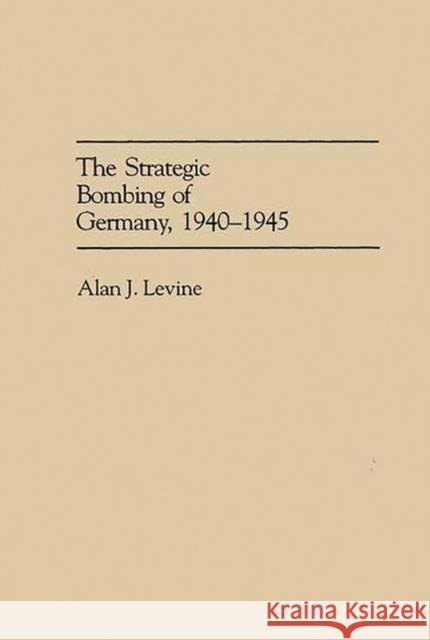The Strategic Bombing of Germany, 1940-1945 » książka
The Strategic Bombing of Germany, 1940-1945
ISBN-13: 9780275943196 / Angielski / Twarda / 1992 / 248 str.
This book is the only full-scale account of the strategic air offensive against Germany published in the last twenty years, and is the only one that treats the British and the Americans with parity. Much of what Levine writes about British operations will be unfamiliar to American readers. He has stressed the importance of winning air superiority and the role of escort fighters in strategic bombing, and has given more attention to the German side than most writers on air warfare have. Levine gets past a simple account of what we did to them and describes the target systems and German countermeasures in detail, providing exact yet dramatic accounts of the great bomber operations--the Ruhr dams, Ploesti, and Regensburg and Schweinfurt. The book is broad-guaged, touching many matters, from the development of bombing doctrine before the war to the technical development of the Luftwaffe and the RAF, jets and V-weapons, to the role of the heavy bombers in supporting land and sea operations.
Levine stresses the impact of bombing on the war, and generally endorses the strategic air campaign as worthwhile and effective. But he concludes that many mistakes were made by the Allies--both the British and the Americans--in tactics, the development of equipment, and in the selection of targets. Levine sees strategic bombing as a powerful tool that was often misused, particularly when the doctrine of area bombing flourished. Scholars, students, and buffs interested in World War II and/or the history of aviation will find this study of great interest.











